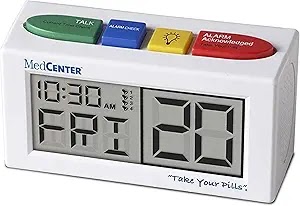- Get link
- X
- Other Apps
Dementia & Alzheimer's Disease
Dementia is an umbrella term for a range of cognitive impairments that interfere with daily life, memory, and decision-making. Alzheimer’s disease is the most common type of dementia, accounting for around 60–80% of cases. It is a progressive brain disorder characterized by the buildup of abnormal proteins (amyloid plaques and tau tangles), leading to neuron damage and cognitive decline.
Can Smell Tests Detect Alzheimer’s?
Yes, research suggests that smell tests may help detect Alzheimer’s disease in its early stages. The olfactory system (which controls the sense of smell) is one of the first areas affected by Alzheimer’s. Scientists have found that people in the early stages of the disease often have a reduced ability to identify or distinguish smells.
How It Works:
-
The test identifies familiar scents (e.g., coffee, lemon, or peanut butter).
-
Some studies suggest that the left nostril’s impaired detection of peanut butter, for example, could be an early sign.
-
A diminished sense of smell can indicate the onset of neurodegenerative changes before noticeable memory loss occurs.
Limitations:
-
Smell loss can also be caused by aging, sinus issues, COVID-19, or Parkinson’s disease.
-
Smell tests are not standalone diagnostic tools; they are used alongside brain scans, cognitive tests, and biomarker analysis
Early Signs of Alzheimer’s Disease
Alzheimer’s typically develops gradually, and early symptoms may be mistaken for normal aging. However, some key warning signs include:
1. Memory Loss That Disrupts Daily Life
-
Forgetting recently learned information, important dates, or appointments.
-
Repeating questions or relying heavily on reminders.
2. Difficulty Planning or Problem-Solving
-
Struggling with familiar tasks, like following a recipe or managing finances.
-
Trouble concentrating on tasks that require logical thinking.
3. Confusion About Time or Place
-
Losing track of dates, seasons, or where they are.
-
Forgetting how they arrived at a location.
4. Trouble Recognizing Faces or Objects
-
Difficulty identifying familiar people or objects.
-
Misplacing items and putting them in unusual places (e.g., keys in the fridge).
5. Trouble with Words (Speaking or Writing)
-
Struggling to find the right words in conversation.
-
Repeating the same words or losing track of conversations.
6. Poor Judgment & Decision-Making
-
Falling for scams or making unusual financial decisions.
-
Neglecting hygiene or wearing inappropriate clothing for the weather.
7. Withdrawal from Social Activities
-
Avoiding hobbies, work, or social interactions due to difficulty keeping up.
-
Losing interest in favorite activities.
8. Mood & Personality Changes
-
Increased anxiety, depression, or paranoia.
-
Becoming easily upset, especially in unfamiliar settings.
Recent Advancements in Detection & Diagnosis
-
Blood Tests – New biomarkers can detect proteins linked to Alzheimer’s (e.g., amyloid-beta and tau) before symptoms appear.
-
AI & Brain Imaging – AI is improving the analysis of MRI and PET scans to detect early brain changes.
-
Eye & Pupil Tests – Some studies suggest that pupil dilation in response to cognitive tasks may predict Alzheimer’s risk.
-
Genetic Testing – The APOE-e4 gene is linked to a higher risk, but not everyone with the gene develops Alzheimer’s.
Prevention & Risk Reduction for Alzheimer’s
While there is no guaranteed way to prevent Alzheimer’s, research suggests that a healthy lifestyle can reduce the risk or delay onset.
1. Healthy Diet
-
The Mediterranean or MIND diet (rich in vegetables, whole grains, nuts, fish, and olive oil) has been linked to better brain health.
-
Reduce processed foods, sugar, and saturated fats, which may contribute to inflammation and cognitive decline.
2. Regular Physical Exercise
-
Aerobic exercise (walking, swimming, cycling) improves blood flow to the brain and supports neuron health.
-
Strength training helps maintain overall physical and mental resilience.
3. Mental Stimulation
-
Lifelong learning, puzzles, reading, and creative hobbies can strengthen cognitive function.
-
Social engagement is key—staying connected with family, friends, and community reduces dementia risk.
4. Quality Sleep
-
Poor sleep, especially sleep apnea or chronic insomnia, increases Alzheimer’s risk.
-
Aim for 7–9 hours of quality sleep per night.
5. Managing Health Conditions
-
Control blood pressure, diabetes, and cholesterol, as cardiovascular health is closely linked to brain health.
-
Avoid smoking and limit alcohol intake.
6. Stress Management
-
Chronic stress leads to inflammation and memory issues.
-
Meditation, yoga, deep breathing, and relaxation techniques help protect brain health.
- Get link
- X
- Other Apps




Comments
Post a Comment